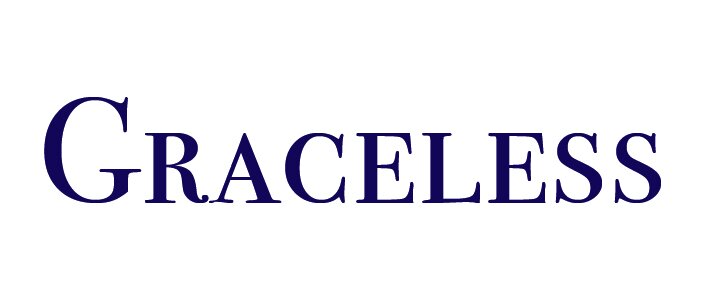Please Don't Give Greta Gerwig an Oscar
The National Board of Review awards, one of the first of the hyper-crowded Hollywood awards season, announced its picks for films and actors yesterday. The Post, a film about The Washington Post during the leaking of the Pentagon Papers, won a passel of awards and looks to be the prestige picture of the year, i.e., a movie about a Very Important Time in history that stars Meryl Streep or Tom Hanks. (It has both!)I am not here today to talk about Meryl Streep. I am here to talk about Greta Gerwig, and the fact that she was given NBR’s prize for best director. Last year, this award was given to Barry Jenkins for Moonlight, an early award that, as Vanity Fair said, “bolstered that film’s status as the underdog champion of the year (and eventual best picture winner).” Let’s put a pin in that statement for a minute and talk about Ms. Gerwig and her film Lady Bird .Lady Bird is a movie about a teenage girl in Sacramento. She is wry and witty and sure of herself to the point of disbelief, considering her age. Her boyfriend is thoughtful and benevolent to the point of disbelief, especially considering his age. Her father is puppy-dog hapless and shares secrets with her. She fights with her mother, but at the end of the day loves her very much and shares secrets with her too. She wants very badly to go to a “liberal East Coast college” (her words, frequently), but they are middle class and Lady Bird doesn’t have a stellar GPA. This college storyline appears to be the primary plot point of the entire film, with all of the standard adolescent angst as a side dish. The fact that the latter is filtered through Lady Bird’s ‘I am a teenage girl who is sure of herself and do not care what you think!’ attitude appears to be what people love about this movie. And man, are they loving it.“You might think you’ve seen this all before. You probably have, but never quite like this. What Ms. Gerwig has done — and it’s by no means a small accomplishment — is to infuse one of the most convention-bound, rose-colored genres in American cinema with freshness and surprise.”A.O. Scott, The New York Times“A modest, miraculous low-budget gem that takes on a life of its own.”Peter Debruge, Variety“Anyone who’s lived within the emotional cyclone known as adolescence will recognize the vertiginous highs and lows of “Lady Bird.”Ann Hornaday, The Washington PostReading the reviews of this movie - and they’re all like that - leads one to believe that Greta Gerwig has taken the Angsty Teenage White Girl trope and turned it not just on its head but inside out, upside down, and into another dimension. In actuality, it’s just another movie about a privileged white girl. When the lights came up, the first thing out of my (white girl) mouth, to my (white girl) friend was, “Jesus I’m tired of hearing about white girls.” I felt so bland after watching it. So bored and uninspired. So hungry for a story I’d never heard before, and characters I couldn’t sketch out on paper from memory. I felt like I’d just watched a different form of Lena Dunham, with slightly poorer parents. Let’s get back to Barry Jenkins and Moonlight. Now that was something I’d never seen before, a story and characters completely fresh and surprising to me, and deeply moving to boot. Moonlight was why I go to the movies—the chance that I’ll have my eyes opened, my soul moved, my anger piqued, by an unique artistic voice. It was poetry in film form, and I’m still inordinately happy that it won Best Picture (albeit in an awkward, clumsy way). It was also raved about in reviews with much the same wording as Lady Bird. All of that, combined with Gerwig’s directing award yesterday, seems to point to some pretty big awards coming her way. Not that she hasn’t worked hard for them. And not that her work is entirely without merit. But if she earns directing awards over Jordan Peele (for Get Out), I’m going to start some riots.We need to pause and question what, exactly, we should continue to reward, and what we say “enough” to. There was a time when the Angsty White Girl thing worked. Molly Ringwald, Ally Sheedy, Winona Ryder, Claire Danes, Christina Ricci, Thora Birch - just to name a few - all explored this land, much to our delight. But we’ve drilled that well, primed that pump, lined it with ceramic tile, and sculpted it into the Trevi Fountain. We know what every corner of it looks like. It’s time to move on.Yes, we need more women directors and writers - we still haven’t put enough cracks in that ceiling - but must they all come from the same background? What if Greta Gerwig took her newfound accolades and cash and produced some works by women of color? How freaking awesome would that be? What if Lena Dunham listened to the recent charges against her of ‘hipster racism’ and responded with, “You know what? You’re right. I’m going to shut up for a while, step out of the spotlight, and push some artists of color into my place.”There’s some phenomenal work coming out of people with different points of view. (It’s as simple as that.) The aforementioned Get Out, Spike Lee’s new She’s Gotta Have It series, Donald Glover’s Atlanta, Issa Rae’s Insecure, Greenleaf, Queen Sugar, Chewing Gum. But I want more. Because I’ve spent my life sitting in this goddamned boring white box and I want OUT. I want my mind upended by lives I haven’t been able to imagine. Early on in Lady Bird, our teen protagonist sighs longingly, “I wish I could live through something.” Perhaps, my dear, that’s a sign that you should step back and let the people who have, talk. Photo credit: flickr.com/therichbrooks

